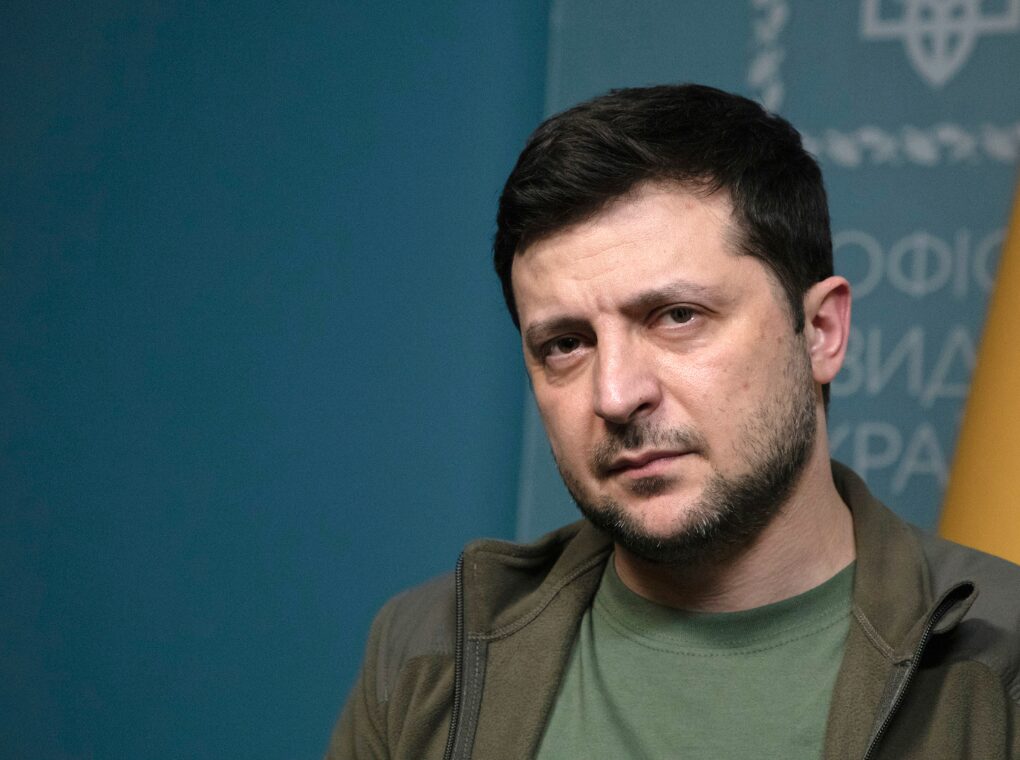In a bold and provocative statement that has sent shockwaves through international diplomatic circles, Ukrainian President Volodymyr Zelensky declared that the most effective sanctions against Russia are the ongoing fires at its oil refineries, terminals, and oil depots.
The remark, delivered during a press conference in Kyiv amid escalating tensions in the ongoing conflict, underscores Ukraine’s frustration with the slow pace of Western sanctions and highlights the disruptive impact of sabotage operations on Russia’s war machine.
Context of the Statement
Zelensky’s comments come at a time when Ukraine has intensified its asymmetric warfare tactics against Russia’s energy infrastructure. Over the past year, a series of mysterious fires and explosions have plagued Russian oil facilities, significantly reducing the country’s refining capacity and export revenues. These incidents, often attributed to Ukrainian drone strikes or insider sabotage, have been a thorn in Moscow’s side, forcing Russia to import refined products and straining its economy amid Western sanctions.
“The sanctions from our partners are important, but they are not enough,” Zelensky stated, his voice firm as he addressed reporters. “The most effective sanctions are those fires at Russian oil refineries, terminals, and oil depots. They hit where it hurts – in the Kremlin’s wallet and its ability to fund this war.”
The president’s words were met with a mix of applause from Ukrainian supporters and condemnation from Russian officials, who labeled them as “terrorism glorification.” International observers, however, see them as a pragmatic assessment of the battlefield realities.
The Impact of Fires on Russian Oil Infrastructure
Since the full-scale invasion of Ukraine in February 2022, Russia has faced a barrage of sanctions aimed at crippling its energy sector, which accounts for a significant portion of its GDP. However, the targeted attacks on oil facilities have proven particularly devastating. According to energy analysts, these incidents have led to the shutdown of up to 15% of Russia’s refining capacity in recent months.
Key events include:
March 2025 Fire at the Ryazan Refinery: A massive blaze halted operations at one of Russia’s largest refineries, causing an estimated $500 million in damages and disrupting fuel supplies to the Russian military.
July 2025 Explosion at Novoshakhtinsk Terminal: Attributed to a drone strike, this incident destroyed several storage tanks, leading to a spike in global oil prices and further isolating Russia from international markets.
August 2025 Blaze at Ust-Luga Oil Depot: Fires raged for days, forcing evacuations and highlighting vulnerabilities in Russia’s export infrastructure.
These disruptions have not only reduced Russia’s oil revenues by billions but have also forced President Vladimir Putin to ration fuel for domestic use and seek alternative suppliers from allies like Iran and North Korea. Zelensky’s statement implicitly credits Ukraine’s special forces and intelligence operations for these “sanctions,” suggesting a shift in strategy towards direct economic warfare.
International Reactions and Diplomatic Fallout
Zelensky’s remark has drawn sharp reactions from around the world. The United States and European Union, key supporters of Ukraine, issued cautious statements emphasizing the importance of legal sanctions while avoiding direct endorsement of sabotage tactics. “We stand with Ukraine in its defense, but all actions must align with international law,” a White House spokesperson said.
In contrast, Russia has vowed retaliation, with Foreign Minister Sergey Lavrov accusing Zelensky of “admitting to state-sponsored terrorism.” The Kremlin has ramped up its propaganda efforts, portraying the fires as accidents caused by poor maintenance rather than deliberate attacks.
Human rights organizations have expressed concern over the escalation, warning that such statements could justify further violence on both sides. Meanwhile, environmental groups have highlighted the ecological damage from these fires, including oil spills and air pollution affecting regions far beyond the conflict zone.
Broader Implications for the Ukraine-Russia Conflict
Zelensky’s comments reflect a growing impatience in Kyiv with the West’s reluctance to provide long-range weapons capable of striking deep into Russian territory. By framing sabotage as “effective sanctions,” the president is pressuring allies to either loosen restrictions on Ukrainian operations or impose tougher measures themselves.
Experts believe this rhetoric could galvanize domestic support in Ukraine while signaling to Moscow that its energy lifeline remains under threat. As the conflict enters its fourth year, the war’s economic dimension is becoming as critical as the military one. Russia’s ability to sustain its invasion hinges on oil revenues, and continued disruptions could tip the balance in Ukraine’s favor.
Zelensky’s provocative statement serves as a stark reminder of the unconventional warfare shaping the Ukraine crisis. Whether these “fires” will lead to a breakthrough in peace negotiations or further entrench the stalemate remains to be seen. For now, they burn brightly as symbols of resistance and resilience.
